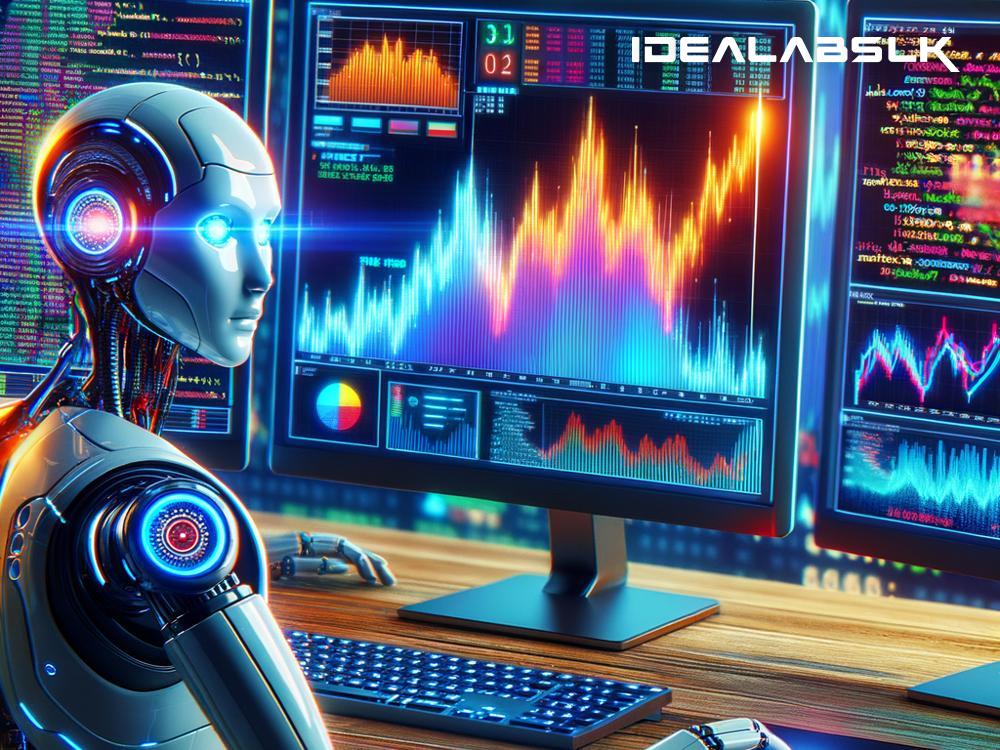AI in Trading: How Machine Learning Algorithms are Changing the Game
In recent years, Artificial Intelligence (AI) has infiltrated numerous sectors, from healthcare to automotive. However, one of its most impactful inroads has been in the sphere of trading and finance. AI, particularly through machine learning algorithms, is revolutionizing how trading decisions are made, shifting the landscape from human-driven strategies to tech-savvy, algorithmic methodologies. So, let's delve into how machine learning algorithms are changing the trading game, making it more efficient, accurate, and profitable.
Understanding Machine Learning in Trading
Machine learning is a subset of AI that enables software applications to become more accurate in predicting outcomes without being explicitly programmed to do so. In trading, these algorithms analyze massive amounts of data - including historical prices, market trends, and economic indicators - to forecast future price movements of stocks, commodities, or currencies.
The Game-changing Impact
-
Speed and Efficiency: Human traders process information and make decisions relatively slowly compared to AI. Machine learning algorithms can analyze vast datasets in milliseconds, execute trades at the optimal time, and adjust strategies in real-time. This speed and efficiency edge significantly enhances the potential for profitability.
-
Emotionless Trading: Emotional decision-making can lead to costly mistakes in trading. AI, devoid of emotion, strictly adheres to the strategy it's programmed to follow, avoiding the pitfalls of fear or greed that often plague human traders.
-
Predictive Analytics: Machine learning excels at finding patterns in data that humans might overlook. These patterns allow for predictive analytics, which can forecast market movements with a higher degree of accuracy. This predictive capability means potentially better-informed trading decisions.
-
Quantitative Trading: Also known as quant trading, this involves strategies based purely on quantitative analysis. Machine learning algorithms are at the heart of quant trading, enabling the development and execution of complex models that can identify profitable trading opportunities.
-
Risk Management: By analyzing historical data and current market conditions, AI can assess the risk associated with different trades. This enables better risk management strategies, protecting investments from significant losses.
Real-world Applications
Companies and financial institutions have started to implement AI-driven trading systems with remarkable success. For example, hedge funds employing AI strategies have outperformed traditional funds, attributing their success to the efficiency, accuracy, and predictive power of machine learning algorithms. Retail traders are also getting in on the action, with accessible platforms that leverage AI to help make trading decisions.
Ethical Considerations and Challenges
While the benefits are manifold, the rise of AI in trading does pose challenges. There is a growing concern about the potential for market manipulation, where AI systems could be used unethically to create unfair advantages. Furthermore, there’s the risk of systemic failures - if many trading systems rely on similar algorithms, they could all react simultaneously to certain market conditions, exacerbating market volatility.
Regulation is another challenge. The rapid evolution of AI technologies makes it difficult for regulatory frameworks to keep pace, creating a gray area around the legality of certain AI-driven trading practices.
Lastly, there's the fear of job displacement. As AI systems become more capable, the need for human traders could decrease, leading to job losses in the sector.
The Future of Trading with AI
Looking ahead, the integration of AI in trading is only set to deepen. Advancements in AI technologies will further enhance the capabilities of trading algorithms, making them even more indispensable to modern trading strategies. Furthermore, as regulatory and ethical guidelines evolve to catch up with technology, we can expect a more stable and equitable trading environment.
In conclusion, the fusion of AI and trading is undoubtedly transforming the industry. Machine learning algorithms offer unparalleled advantages in terms of speed, efficiency, and accuracy, making them a game-changer in the trading arena. However, as we navigate this new era, balancing innovation with ethical considerations and regulatory compliance will be key to harnessing the full potential of AI in trading while mitigating its risks. As we stand on the cusp of this exciting frontier, one thing is clear: the future of trading is intrinsically linked with the advancement of AI technologies.

